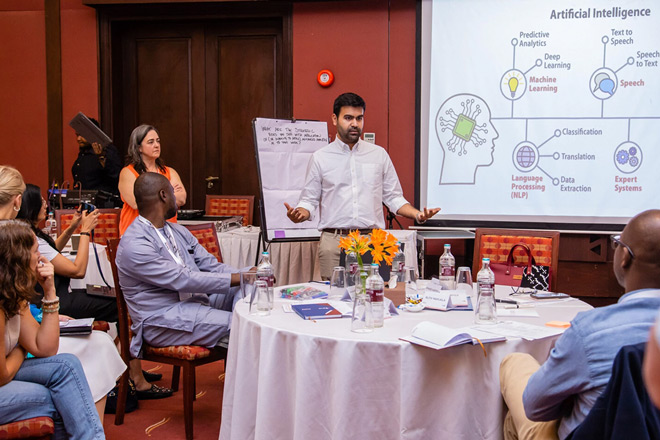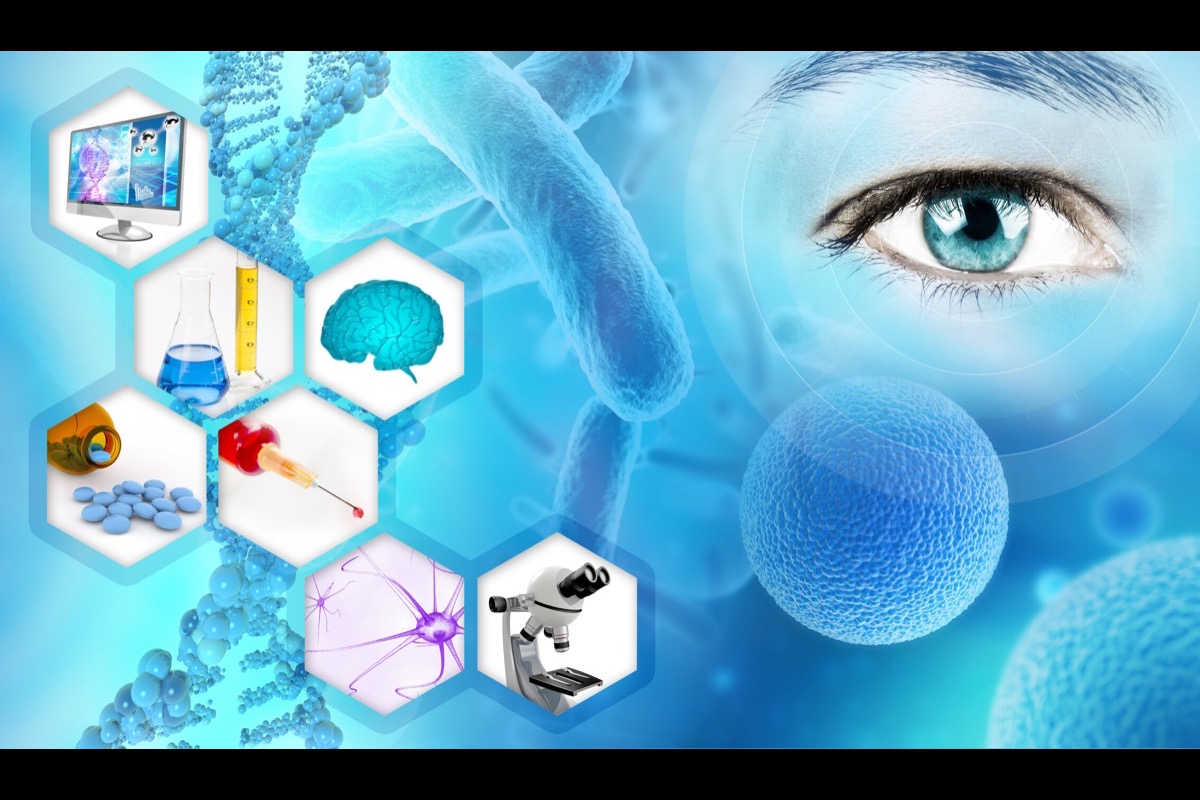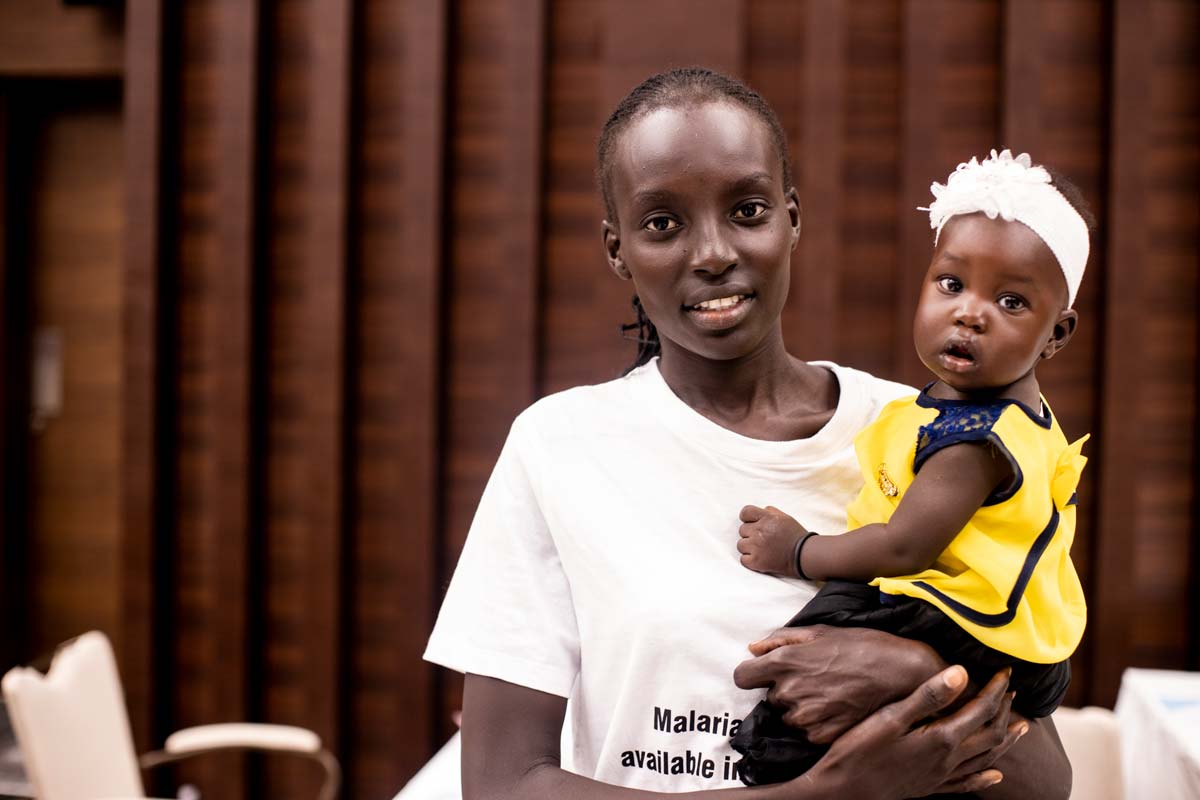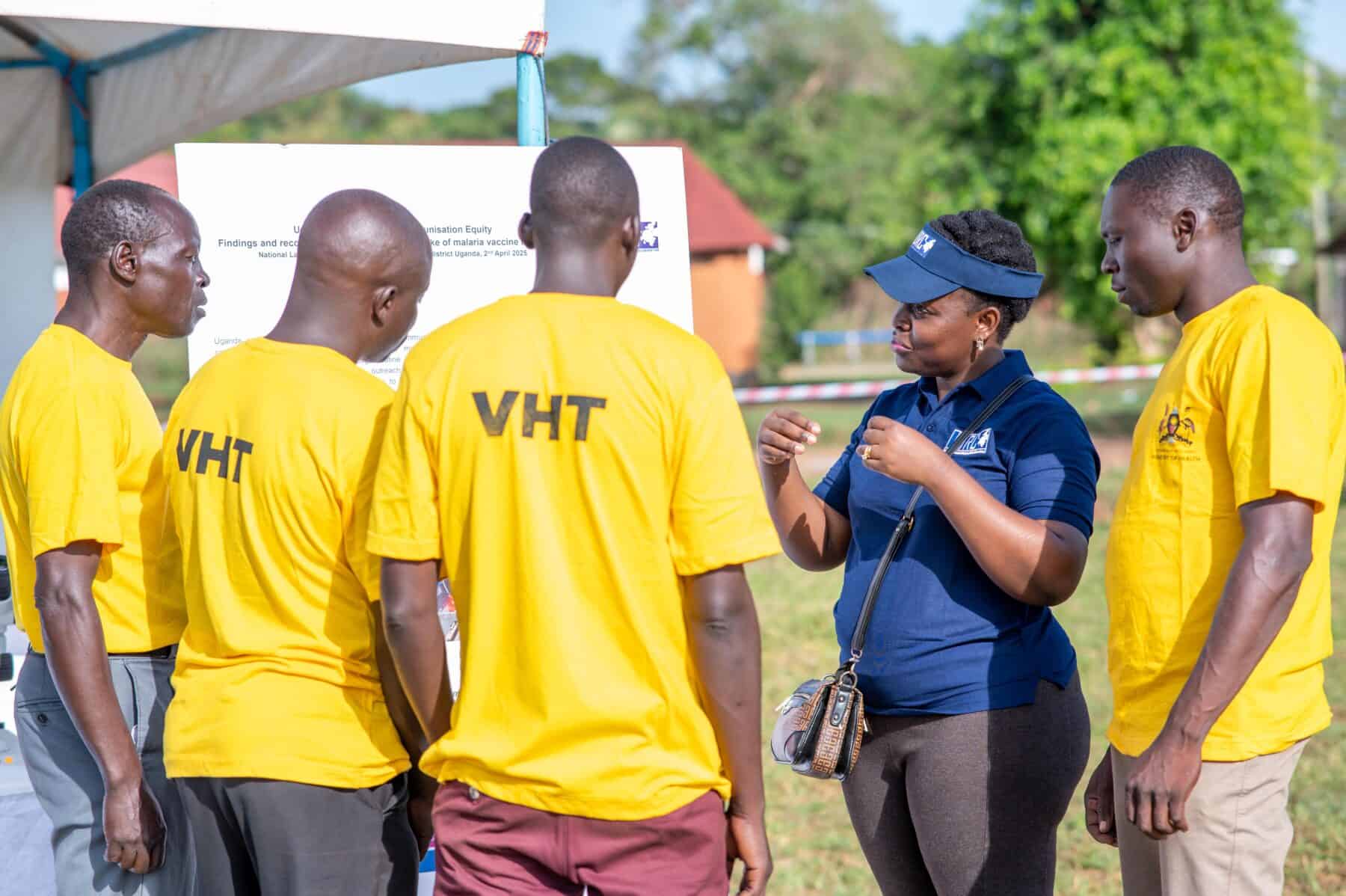Why redefining health will boost the economy
Healthcare should recognize human functioning as a key health indicator, which emphasizes individual well-being and prioritises education, equality and social support systems.
- 27 September 2023
- 4 min read
- by World Economic Forum

The main measure of a country's performance, and therefore its 'success', is the gross domestic product (GDP). But does a high GDP mean that a country is doing well for its people? Not necessarily. A high GDP is compatible with vast income inequalities, lack of public services, and environmental degradation. Following this realization, countries and institutions have begun developing new metrics.
In the pursuit of human-centred measures, a new concept has emerged – the economy of well-being. It is based on the idea that long-term, sustainable economic growth can be achieved by cultivating individual well-being. In other words, a society that prioritizes good education, healthcare, equality, and social support systems is more likely to prosper.
We believe 'human functioning', a health assessment framework developed by the World Health Organization (WHO), can promote this progressive vision. We recently published an article in Frontiers in Science where we presented this concept's revolutionary potential and outlined a strategy for integrating it into health and social systems. This approach may not only unlock progress toward the economy of well-being but also advance the United Nations (UN) Sustainable Development Agenda.
Human functioning: a more complete understanding of human health
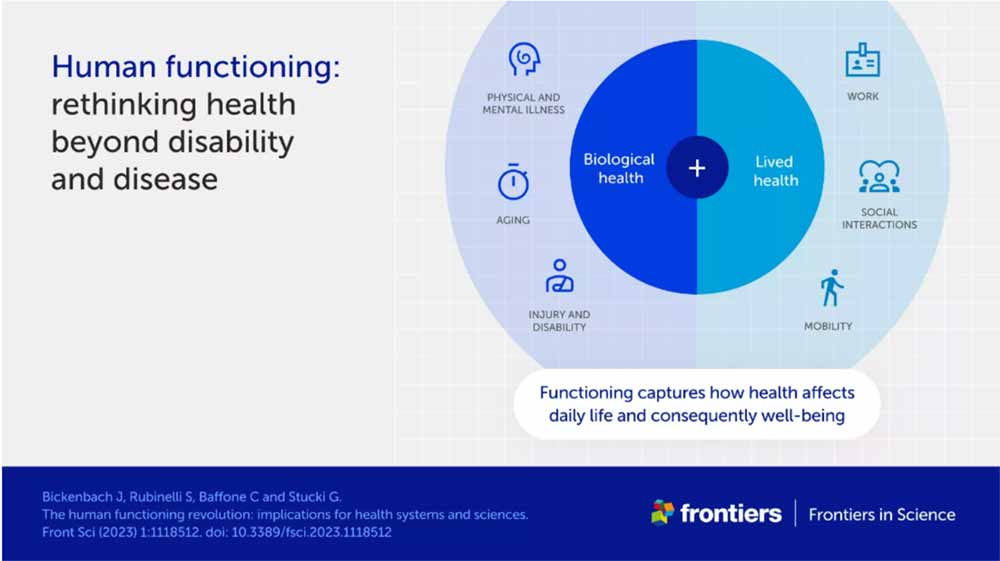
Human functioning is a rethinking of health that goes beyond disability and disease. It encompasses people's biological health as well as their 'lived health' – their ability to perform daily activities from eating and personal care to working and socializing.
The value of this approach becomes instantly clear when considering how accessibility and assistive technologies can transform the lives of disabled individuals. But shifting from the traditional definition of health to human functioning can benefit us all.
Studies show that our overall health is mainly determined by what we do and how we live – our behaviours and habits, socioeconomic status, and environmental conditions. This means that while traditional healthcare is important for treating health problems when they arise, it often doesn't address their cause. Human functioning, on the other hand, provides a framework for both preventing and treating disease.
Human functioning could lead to societal gains

Though integrating functioning into public structures requires significant investment, it should yield good returns for societies. Implemented at a large scale, human functioning could promote the economy of well-being by creating a society made of healthy, thriving individuals. High population health and functioning increases the probability that people will be more productive at work, achieve higher lifetime earnings, and enjoy good health for many years.
Have you read?
Human functioning could also protect societies against demographic changes and system shocks. Population ageing in G20 countries is an example of an eminent societal challenge where human functioning could be instrumental. International institutions, such as the Organisation for Economic Co-operation and Development (OECD), warn this demographic shift will put unprecedented stress on health and social systems. Human functioning could promote healthy ageing, which will relieve pressure from public structures while enhancing the life quality of the elderly.
Finally, human functioning can also advance the 2030 Sustainable Development Agenda, defined by the United Nations in 2015. One of the agenda's main goals is 'to ensure healthy lives and promote well-being for all'. Though this goal targets both health and well-being, progress has only been measured by tracking mortality and morbidity. Human functioning can fill this gap by providing data on population well-being.
Next steps for building a 'functioning' society
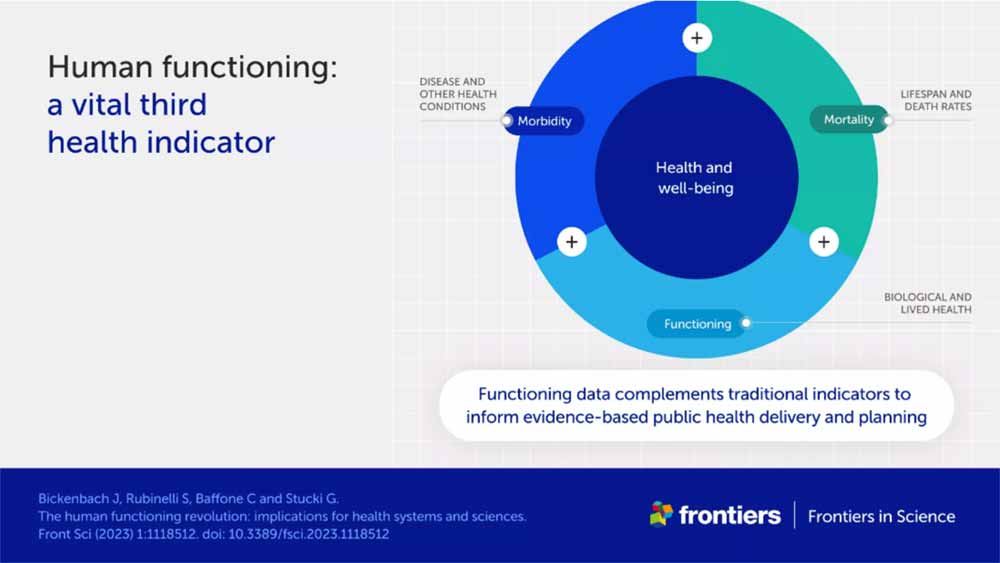
A good starting point for integrating human functioning into public structures would be to recognize it as a major health indicator. Currently, morbidity and mortality are the main indicators used to evaluate population health and the success of policies and interventions. While this strategy has brought us enormous benefits, it doesn't encompass lived health and well-being. Once we begin systematically collecting functioning, morbidity, and mortality data, we'll be able to design public policies that are informed by a more complete picture of population health.
We would also need to develop new programs for training a workforce dedicated to this rethinking of health. The multidimensional nature of human functioning will require an innovative curriculum combining medical, biological, and social sciences. Establishing a new scientific field called 'human functioning sciences' could provide a foundation for these programs while generating knowledge for optimizing the implementation of human functioning into health and social systems.
Navigating the challenges ahead
Human functioning could unlock the economy of well-being and advance the United Nations' Sustainable Development Agenda. But realizing this promise will require investment in research and training programs, new technologies, and infrastructures. The article hub at Frontiers in Sciencefeatures expert opinions on the challenges ahead and how they can be overcome.
Written by
Jerome E. Bickenbach, Faculty of Health Sciences and Medicine, University of Lucerne, Swiss Paraplegic Research (SPF)
Sara Rubinelli, Affiliation Faculty of Health Sciences and Medicine, University of Lucerne, Swiss Paraplegic Research (SPF)
Gerold Stucki, Faculty of Health Sciences and Medicine, University of Lucerne, Swiss Paraplegic Research (SPF)
Website
This article was originally published by the World Economic Forum on 27 September 2023.
